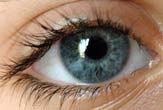People Judge in the Blink of an Eye

Get the world’s most fascinating discoveries delivered straight to your inbox.
You are now subscribed
Your newsletter sign-up was successful
Want to add more newsletters?

Delivered Daily
Daily Newsletter
Sign up for the latest discoveries, groundbreaking research and fascinating breakthroughs that impact you and the wider world direct to your inbox.

Once a week
Life's Little Mysteries
Feed your curiosity with an exclusive mystery every week, solved with science and delivered direct to your inbox before it's seen anywhere else.

Once a week
How It Works
Sign up to our free science & technology newsletter for your weekly fix of fascinating articles, quick quizzes, amazing images, and more

Delivered daily
Space.com Newsletter
Breaking space news, the latest updates on rocket launches, skywatching events and more!

Once a month
Watch This Space
Sign up to our monthly entertainment newsletter to keep up with all our coverage of the latest sci-fi and space movies, tv shows, games and books.

Once a week
Night Sky This Week
Discover this week's must-see night sky events, moon phases, and stunning astrophotos. Sign up for our skywatching newsletter and explore the universe with us!
Join the club
Get full access to premium articles, exclusive features and a growing list of member rewards.
Talk about snap judgments! People decide whether another person is trustworthy within a tenth of a second, a new study suggests.
Researchers flashed photographs to about 200 test subjects, in some cases for 1 second and in others for a small fraction of a second. The participants were asked to rate each face and also to state how confident they were in their conclusions.
"If given more time, people's fundamental judgment about faces did not change," said Princeton University psychologist Alex Todorov. "Observers simply became more confident in their judgments as the duration lengthened."
Todorov has done similar research in the past. It all suggests snap judgments are common.
"The link between facial features and character may be tenuous at best, but that doesn't stop our minds from sizing other people up at a glance," he said. "We decide very quickly whether a person possesses many of the traits we feel are important, such as likeability and competence, even though we have not exchanged a single word with them. It appears that we are hard-wired to draw these inferences in a fast, unreflective way."
It's not clear why we judge so quickly. But Todorov has done brain imaging that suggests our mind's fear-response region may be involved.
"The fear response involves the amygdala, a part of the brain that existed in animals for millions of years before the development of the prefrontal cortex, where rational thoughts come from," he said. "We imagine trust to be a rather sophisticated response, but our observations indicate that trust might be a case of a high-level judgment being made by a low-level brain structure. Perhaps the signal bypasses the cortex altogether."
Get the world’s most fascinating discoveries delivered straight to your inbox.
Meanwhile, he has no clue what we look for.
"We still don't know the physical features of a face that lead to a particular trait inference," he said. "We know generally what makes a face attractive, such as its symmetry, the proportions of its parts and the like. But what is it about a face that makes you think its owner is an essentially competent person? That's the subject of another study, one that needs to be done."
This research was sponsored in part by the National Science Foundation and published in the July issue of the journal Psychological Science.
 Live Science Plus
Live Science Plus











